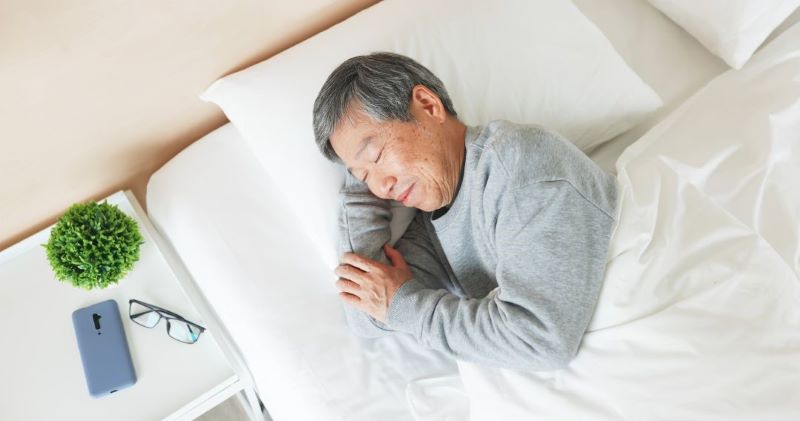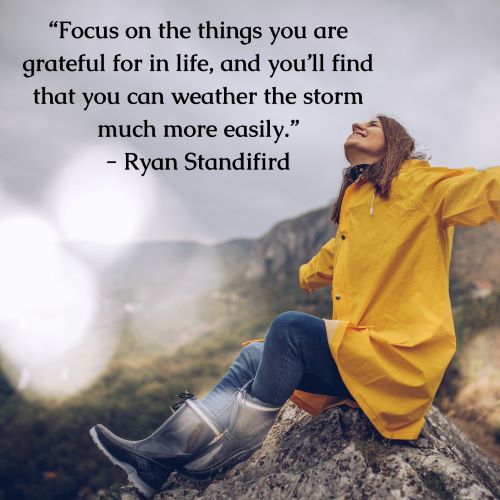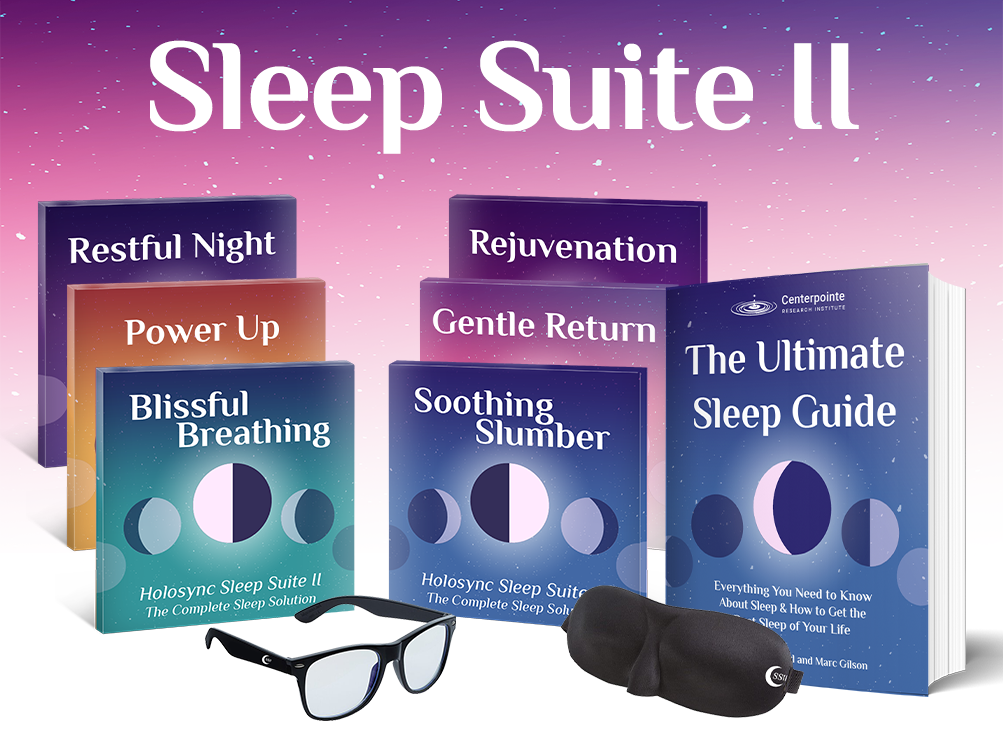
Issue #414 – Monday, March 11, 2024
By Ryan Standifird
If you’re like me, then you’re probably sick and tired of being reminded that we all went through a global pandemic that began just four years ago.
After all, it’s much easier on our stress levels if we can just close that chapter and forget all about the lockdowns, the death tolls, and the fear of an uncertain world out of our control.
But while it may be painful to look back on all that chaos, there were also some major lessons learned - some lemonade that was able to be made from all those lemons.
For example, it gave scientists a rare opportunity to learn about how we can more effectively deal with another major health concern: chronic stress.

See, chronic stress was not nearly as prevalent before 2020. But with the toilet paper shortages, mask mandates and political tensions, the first year of the pandemic saw more chronic stress than ever before.
Researchers from the University of York decided to seize upon this opportunity to find out if there was a way to give folks an advantage against these stressful times. Was there an effective strategy that could defend your stress levels from hitting the breaking point?
Is there anything you can do to stave off anxiety and depression when the world seems like it’s crumbling around you?
Yes - in fact they found that there were TWO things that made a major difference in the mental health of the study participants when stress levels were peaking.
Difference-Maker #1: Effective Coping Strategies
Not everyone who experiences chronic stress develops anxiety or depression. That’s because our brains use coping mechanisms to try and relieve the stress as it accumulates.
Think of a boat that’s sprung a leak and is now taking on water. If your mental health is the boat, and stress is the water that’s invading your boat, then a coping mechanism is like a bucket that you can use to try and bail the water out before the boat sinks.
But not everyone has the same bucket.
For example, some folks might turn to alcohol or other substances as a way to “escape” from accumulating stress. This might help provide a temporary escape from the stress, but it always comes with drawbacks that can actually create more problems than it solves. It’s like bailing out your boat with a shot glass! Eventually you’ll be left treading water.
Another common coping trap is to fall into a pattern of rumination on the cause of the stress. We become obsessed with the leak itself! Instead of bailing any water out, we start criticizing ourselves for having a leaky boat at all. We blame ourselves for the leak, we wish we would have done something differently in the past to prevent the leak. And we start to see leaks everywhere we look. Before we know it, bailing water seems more and more futile.
Meanwhile, more effective coping mechanisms might provide you with a large bucket or even a motorized pump that can empty out the water faster than it fills. This lets you continue on your way towards your destination without too much of a disturbance. And it provides an environment where you can calmly figure out a way to patch the leak up later.
So, what coping mechanisms were most effective?
The study focused on what are known as “Adaptive Cognitive Emotion Regulation Strategies.” These coping methods include:
Refocus on Planning: Instead of worrying about the source of the stress, think about the next steps and how to handle the negative event. For example:
Yes, there is a leak. In order to keep the ship from sinking we need to bail ten buckets of water every hour, and in order to repair the leak we will need these supplies that we can pick up at the next port.
Positive Refocusing: Rather than ruminate on the source of the stress, instead think about what brings you joy and happiness. Focus on the things you are grateful for in life, and you’ll find that you can weather the storm much more easily. For example:
This leak won’t keep me down. Sure, we’ll have to bail water for a while before we make it to port, but when I get there my wife and children will all be waiting for me. I can’t wait to see them.
Positive Reappraisal: Take the source of your stress and reframe or reinterpret the “meaning” that it has in order to turn it into a benefit. For example:
Well, I’ve got to bail out this water but at least I’ll also be building up my muscles - it’s like a free gym membership! And this boat was due for some upgrades anyway. The timing is perfect.
Putting into Perspective: Instead of catastrophizing the problem, you can de-emphasize its impact by comparing it to other events. For example:
Oh this reminds me of that other time that I was on a leaky boat. Now that leak was much worse and we didn’t have any buckets - the boys were using their hats to bail water! We made it through that, we’ll make it through this.
Those who were able to harness one or more of these coping mechanisms were much less likely to contract anxiety or depression during the pandemic.
Difference Maker #2: Getting Quality Sleep
The study also showed that those who got better quality sleep were also much more resistant to depression and anxiety.
There are a ton of reasons why sleep quality improves your resilience in stressful situations, but here are the key highlights:
Sleep balances neurochemicals. When you sleep, your brain flushes toxins accumulated throughout the day and balances the crucial neurochemicals that you need to be emotionally balanced.
Sleep recharges your batteries. Your energy levels are crucial. If you are feeling low-energy, you aren’t making good decisions and it’s more difficult to harness effective coping mechanisms.
Sleep consolidates memories. While you sleep, you consolidate your memories of the day into long-term storage. This frees your mind up for the next day’s interactions so you can have clear thoughts and sharp focus.
Sleep keeps the immune system healthy. While sleeping, your body heals from injury and rejuvenates the immune system. Meanwhile, those who suffer from chronic sleeplessness become prone to a weakened immune response to infection.

It’s clear that sleep plays such a crucial role in our lives, and the quality of your sleep could make or break a stressful experience.
A Common Thread of Awareness
So, how can you take what these scientists learned and make your own lemonade to enjoy?
It all comes down to awareness.
It can be difficult during a stressful moment to activate your awareness. But if you can do it, then you can choose to use one or more of the coping mechanisms I laid out above, and avoid the coping traps that can make the problem worse.
Awareness can also help you realize if you need to make any adjustments to your sleep schedule so that you are getting enough sleep.
This is essential because it works both ways - high quality sleep will keep your awareness dialed up. It’s tough to be aware when you’re low-energy, off-balance, and sick.
So there you have it. Now you have something positive to take from the pandemic that you can use to improve your life. Just don’t forget to put it into practice.
A Shortcut to Quality Sleep
By the way, I wanted to let you know that if sleep is something you struggle with, we have an easy solution for you.
It’s called Holosync Sleep Suite II: The Ultimate Sleep Solution and it can fix the brain’s natural sleep pattern that often gets out of tune due to stress, excessive screen time, or odd working hours.
And the best part?
There’s no pills, no awkward mouthguard, and no side effects!
Check it out right here and have the best sleep of your life tonight.
($50 Off When You Grab it Today)
This all-in-one solution has everything you need to fix your sleep cycle, balance your circadian rhythm, harness the power of power naps, and so much more!
It literally trains your brain to get that healing, deep sleep every night automatically.
(This is an upgraded version of the original Sleep Suite - you DO NOT need to have the original Sleep Suite to benefit!)
There’s never been an easier way to get the best sleep of your life!
Wise Words

I started to listen to this tape when I was feeling fine and simply wanting to relax. I welcomed the sound of the rain as soothing, the tone rings as clearing and stilling the mind, lifting it into a different dimension. In this deep relaxed state, an answer to how I could explain to someone near and dear to me how to release and let go. My mind does not visualize, it feels. Thank you for the most uplifting feeling that opened my mind to awareness of love, and how to answer a need. I will listen again, later today.
~Joan M.
5-Day Challenge Participant
In Case You Missed It - Listen to It!
By MaryEllen Tribby
Centerpointe CEO
February 19, 2024
We Want to Hear From You!
What bad habit would you like to ditch this year?
Post your story on our Facebook Page.
Not on Facebook? Tell me about the impact that meditation with Holosync has had on your daily life. Stress? Sleep? Weight Loss? Focus? Spiritual Connection? Other? Email your story here.








